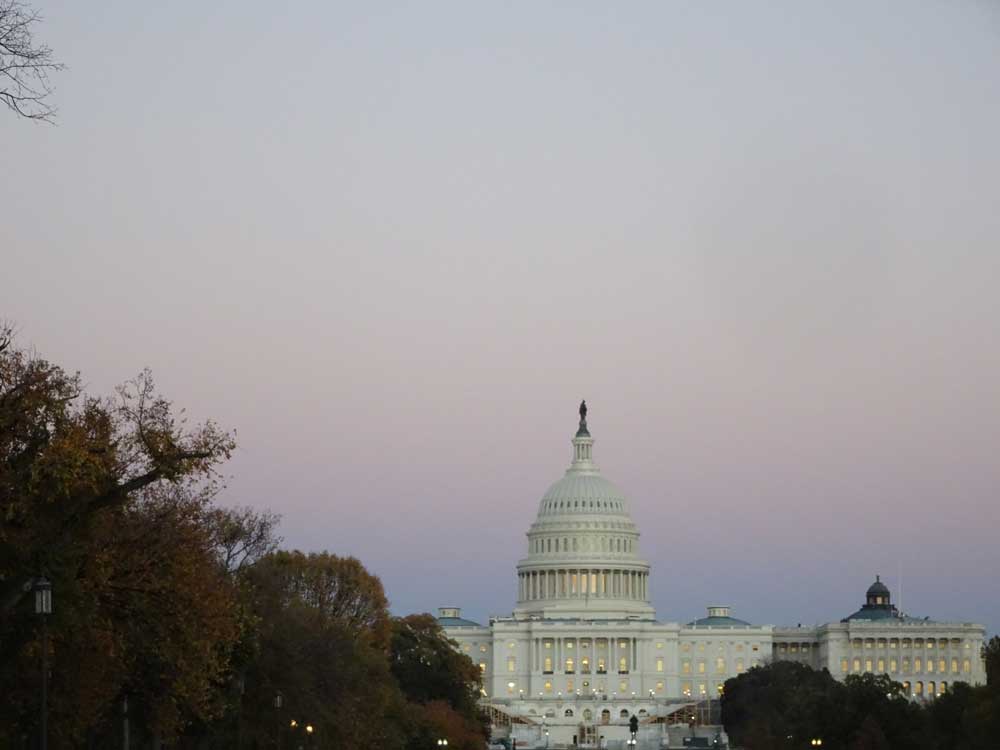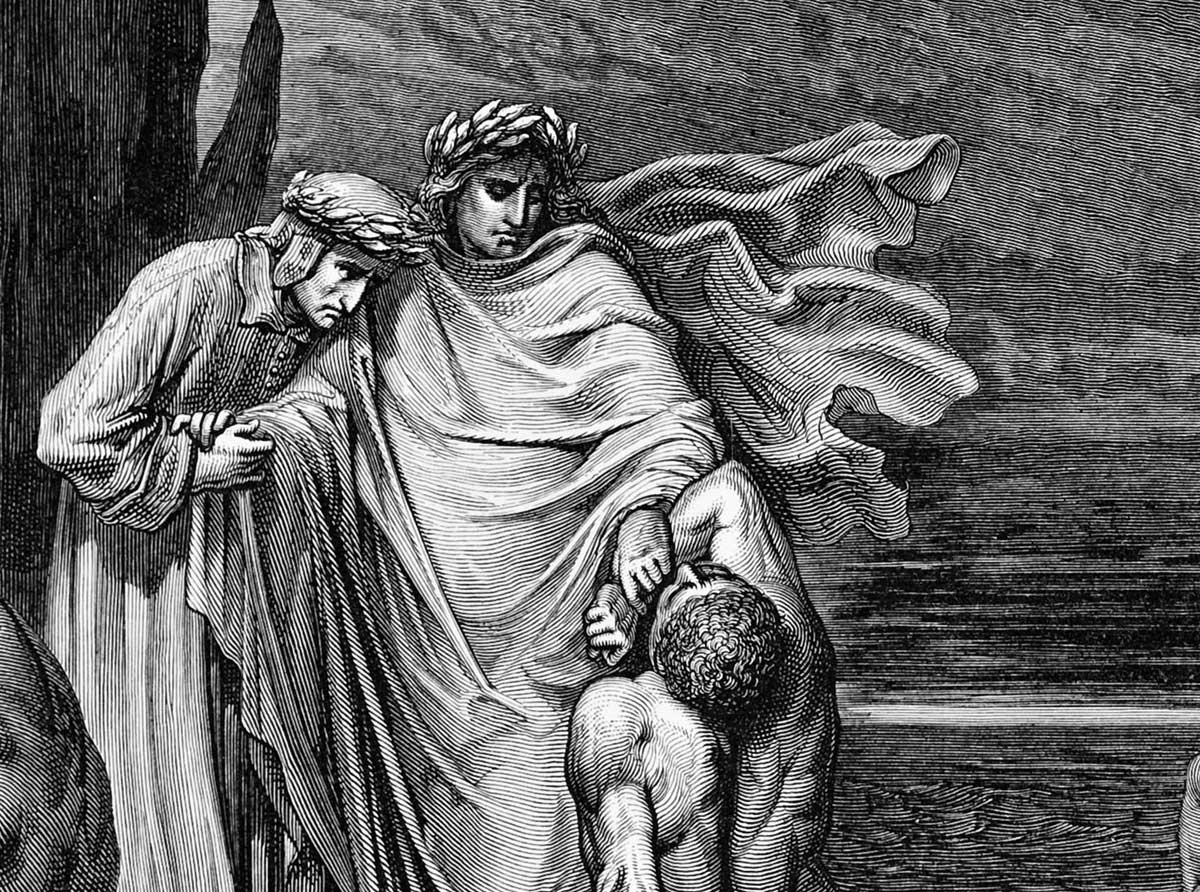The God of Princes
Wilfred M. McClay on the Political Use of Religion
As the strange and unsettling presidential election of 2000 recedes from view, it is important to remember that controversies over prescription drugs and the physiognomy of “chads” were not the only salient issues arising in the course of the campaign.
Indeed, we may by now have forgotten that there was a fleeting moment, early on, when it appeared the election might produce a fresh reconsideration of the proper role and limits of religion in public life. Making this development all the more exceptional was the fact that, for the first time since the days of William Jennings Bryan, the “religion question” was being raised by a Democratic candidate: Connecticut Senator Joseph Lieberman, an avowedly observant “modern orthodox” Jew.
Lieberman’s remarkably frank and enthusiastic public declarations of his religious sentiments in the days and weeks immediately after his selection as Al Gore’s running mate were stunning departures from the norm, and immediately generated quite a storm of controversy and commentary. His fervent and frequent expressions of gratitude to “our awesome God” were music to the ears of many Evangelical and Roman Catholic voters, who might otherwise have been disinclined to pay any attention to a Democrat. In addition, he gave a thoughtful, if somewhat vague and uneven, speech at Notre Dame during the campaign’s home stretch, in which he seemed to endorse the necessity of moral absolutes, extolling the “inextricable link” between “our rights” and “our belief in God and a higher law.”
Remarkably Fluid Stances
But at the same time, those with eyes to see soon became aware that Senator Lieberman is a very complicated man, capable of transforming himself at will into a remarkably fierce and unscrupulous political partisan—a man whose high moral stances prove to be remarkably fluid and negotiable, and whose principal goal is not moral uplift but political victory, at no matter what cost. One could be forgiven for thinking that his conspicuous religiosity had, in the end, only been another posture in the service of that same old Democratic Leadership Council staple: political triangulation.
One could see elements of this particular triangulation strategy beginning to take shape as early as the summer of 1999, at which time the veteran New Democratic strategist and longtime Gore advisor Elaine C. Kamarck confidently assured the Boston Globe that “the Democratic Party is going to take God back this time.” Anyone who has closely watched President Clinton’s astounding success in using bits and pieces of biblical language, blended with psychobabble and crocodile tears, to win over the hearts of many status-anxious Evangelical pastors and editors, knew that this was by no means an impossible task.
Indeed, there is a genuine hunger abroad in the land for public acknowledgment of the Deity, and there is no reason why Republicans should be the only ones trying to satisfy it. The challenge for Democrats, however, was that of finding a path between confining fundamentalism and New Age wackiness, and establishing a position that plausibly evoked the sturdiness of the Judeo-Christian tradition without being overly committed to it.
So when Ed Rendell, chairman of the Democratic National Committee, let out a very public exhalation just before the Democratic convention, to the effect that Joe Lieberman would have been an excellent vice-presidential candidate, if only—sigh!—the country were ready to accept a Jewish candidate for national office, it did not take a genius to see that the selection had probably already been made, and the ground was being prepared for it. Gore’s choice would be presented to the world not only as a dramatic distancing from Bill Clinton, but as a heroic blow against entrenched prejudice.
If this heroic blow turned out actually to be rather more like the kicking-in of an open door, well, no matter. The American people could join in on the fun, and congratulate themselves for being innocent of the anti-Jewish bigotry of which they were being implicitly suspected. And those who had substantive criticisms of Lieberman would likely feel inhibited, if not silenced, by fear of just such a charge.
Lieberman would, in short, be instantly immunized against many of the vulnerabilities facing other pro-religion candidates. No one could plausibly accuse him of insensitivity to religious and ethnic minorities, nor could anyone suspect him of plotting to impose a theocracy. On the contrary, there was ample reason for all Americans, and not merely Jews, to look with unusual favor upon such a candidacy.
Wilfred M. McClay holds the SunTrust Chair of Humanities at the University of Tennessee at Chattanooga, and is the author of The Masterless: Self and Society in Modern America (North Carolina) and A Student's Guide to U.S. History (ISI Books). He is a member of the Presbyterian Church, U.S.A.
subscription options
Order
Print/Online Subscription

Get six issues (one year) of Touchstone PLUS full online access including pdf downloads for only $39.95. That's only $3.34 per month!
Order
Online Only
Subscription

Get a one-year full-access subscription to the Touchstone online archives for only $19.95. That's only $1.66 per month!
bulk subscriptions
Order Touchstone subscriptions in bulk and save $10 per sub! Each subscription includes 6 issues of Touchstone plus full online access to touchstonemag.com—including archives, videos, and pdf downloads of recent issues for only $29.95 each! Great for churches or study groups.
Transactions will be processed on a secure server.
more on politics from the online archives
more from the online archives
calling all readers
Please Donate
"There are magazines worth reading but few worth saving . . . Touchstone is just such a magazine."
—Alice von Hildebrand
"Here we do not concede one square millimeter of territory to falsehood, folly, contemporary sentimentality, or fashion. We speak the truth, and let God be our judge. . . . Touchstone is the one committedly Christian conservative journal."
—Anthony Esolen, Touchstone senior editor













